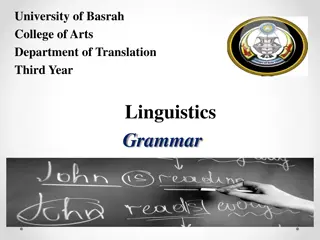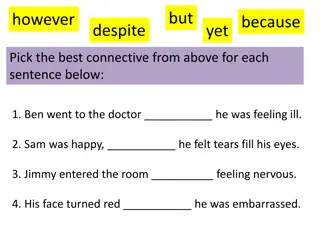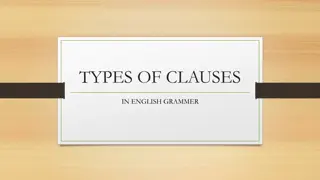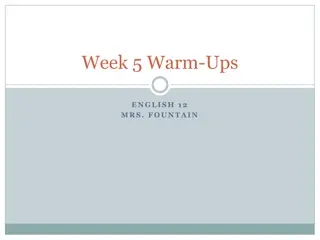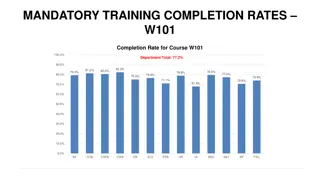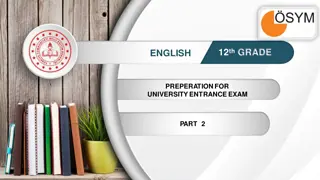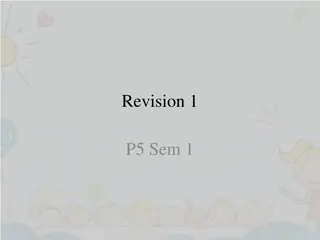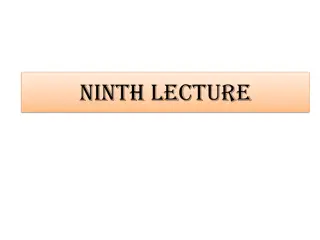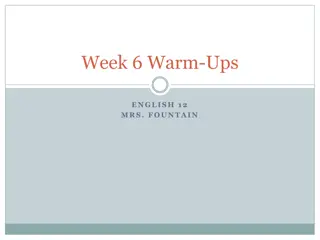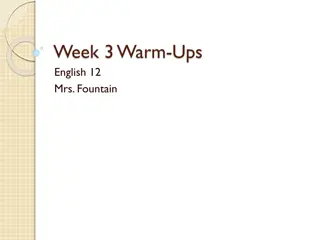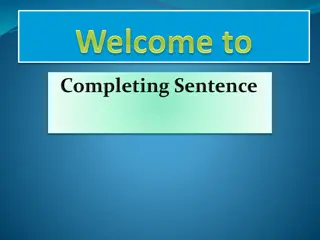Rules for Sentence Completion in English Grammar
Learn about different rules for sentence completion in English grammar, including the use of tenses with examples like using "It is time for..." for present and past forms, "as if/as though" for present and past indefinite, conditional sentences with "if" clauses, and more. Understanding these rules will help improve your sentence structuring skills.
Download Presentation

Please find below an Image/Link to download the presentation.
The content on the website is provided AS IS for your information and personal use only. It may not be sold, licensed, or shared on other websites without obtaining consent from the author.If you encounter any issues during the download, it is possible that the publisher has removed the file from their server.
You are allowed to download the files provided on this website for personal or commercial use, subject to the condition that they are used lawfully. All files are the property of their respective owners.
The content on the website is provided AS IS for your information and personal use only. It may not be sold, licensed, or shared on other websites without obtaining consent from the author.
E N D
Presentation Transcript
Completing Sentence Rule 1: It is time + for + personal object + to + verb (present form) + . It is time for us to attack the enemy. It is time for them to start the work. Rule 2: It is time + subject + verb (past form) + It is time we went home. It is time they earned their livelihood.
Rule 3: Present Indefinite + as if/as though + past indefinite. He tells the story as if he knew it. He runs fast as though he were a mad man. They donate money as if they were rich man. Rule 4: Past Indefinite + as if/as though + past perfect. He told the story as if he had known it. She proceeded as though I had not spoken.
Rule 5: If + Present Indefinite + future indefinite tense. If it rains, we shall not go. If he wants, I shall help him. If you play in the rain, you will catch cold. Rule 6: If + Past Indefinite + would/could + verb (present form). If he came, I would go. If they wanted, we would help him. If I had a typewriter, I would type the letters
Rule 7: If + Past Perfect + would have/could have + verb (past participle form). If I had seen him, I could have told him the news. If they had started earlier, they could have got the train. If she had tried, she would have succeeded. Rule 8: Had + Verb + Past Participle Form + would have/could have + verb (past participle form). Had I seen him, I would have given him the news. Had he wanted, they would have helped him. Had I possessed a vast property, I would have established a college.
Rule 9: If + Subject + were + would + verb (present form). If I were a king, I could help the poor. If I were you, I would not do this. Rule 10: Present/Future Indefinite Tense + when/after + present perfect. You can go to sleep when, you have taken your dinner. You will return me the book after, you have finished reading it. He will swim after, he has changed his dress.
Thank You




